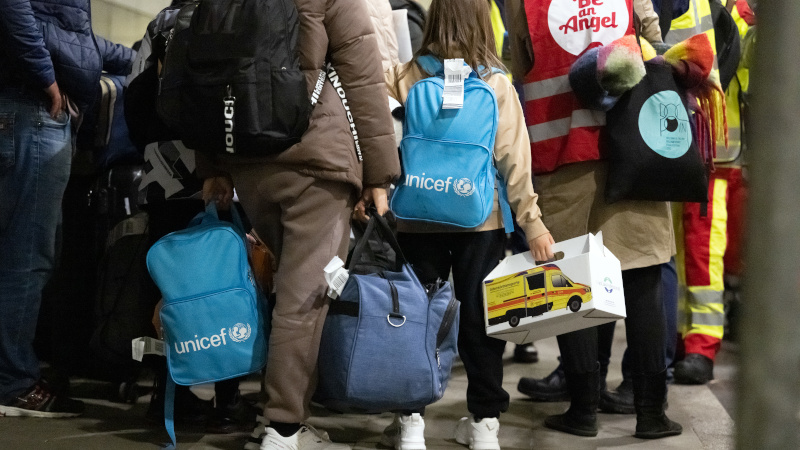Flood of refugees from Ukraine causing repercussions across Europe
The German government has announced its support for a more even distribution of refugees throughout the European Union as the country copes with more than 1.3 million Ukrainian migrants.
Chancellor Olaf Scholz “strongly supports a solidarity distribution for refugees and believes that… secondary migration within the EU should be addressed and resolved in particular,” a spokesperson for the country’s Interior Ministry was quoted as saying in the German newspaper Die Welt Friday.
Germany has been the primary destination for Ukrainian refugees amid the country’s Western-backed proxy war against Russia. Poland and Czechia have welcomed the second and third-largest cohorts of migrants, hosting 960,000 and 360,000 Ukrainians, respectively.
The country offers generous benefits, with a monthly stipend of 563 euros or $610. Meanwhile, the employment rate for Ukrainian refugees in Germany stands at just 20% – far lower than in other EU countries, according to German state broadcaster Deutsche Welle.
Berlin’s proposed policy would see Ukraine migrants who have illegally moved to other EU states be returned to the countries where they originally sought asylum. Some fighting-age refugees could be returned to Ukraine, according to an expert quoted by Die Welt.
Kiev has made efforts to seek the return of military-age citizens as draft dodging remains a major concern. In April, the country announced a plan to deny consular assistance to draft-age Ukrainians abroad, forcing them to visit conscription centers in Ukraine to access services.
Ukraine has taken to forcefully press ganging Ukrainians as opposition to its war with Russia grows within the country, detaining fighting-age men in public venues and submitting them to a brief period of training before they are sent to the front lines. A scandal ensued last month after a 14-year-old boy was assaulted and detained by conscription officers, before subsequently being released after the teenager produced identification proving his age.
The strain of accommodating Ukrainian refugees has stoked tensions throughout Europe, where anti-immigrant politics are on the rise. The Republic of Ireland recently announced cuts to welfare payments for the migrants amid a major housing shortage in the country.
Other domestic policy imposed in light of the conflict between Kiev and Moscow has proven highly controversial; projected German GDP growth for 2024 has shrunk to just .3% as sanctions on Russian gas continue to batter the country’s industry. The elimination of tariffs on Ukrainian agricultural goods has led to farmers’ protests throughout the continent.
Political tensions have mounted within the European Union as well, with Hungary, Serbia and Slovakia among the member states voicing opposition to the arming of Ukraine.
Last week, Slovak Prime Minister Robert Fico was shot by an assailant unhappy with the government’s policy regarding the Western proxy war. Footage has emerged of the would-be assailant at a protest calling Fico’s government “traitors” for refusing to provide military aid to the Kiev regime.
Fico has insisted Slovakia will continue to provide humanitarian aid to Ukraine, but the populist leader claims it is not in the small Central European country’s interest to send armaments to the country.
Tucker Carlson and Erik Prince Expose The Secret Life of Cell Phones


